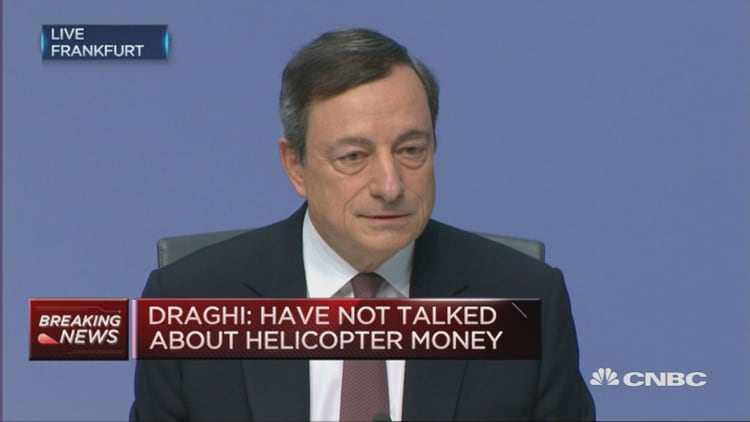


Germany more than doubled its economic growth rate in the first quarter of 2016, following a boost to domestic consumption that may have derived from the European Central Bank (ECB)'s expansionary monetary policy.
On Friday, Germany's Federal Statistical Office reported that the economy expanded by 0.7 percent in the first quarter of the year, quarter-on-quarter.
By comparison, the German economy grew by only 0.3 percent in the final three months of last year.
German politicians such as Finance Minister Wolfgang Schäuble have vehemently criticized the ECB's use of unconventional policies to boost growth and inflation in the euro zone. But these policies that may lie behind the country's economic acceleration, a Frankfurt-based senior economist said on Friday.
"Today's data are another sign of Germany's economic strength. At least at first glance. The economy defied the financial market turmoil at the start of the year as well as the Chinese slowdown. Even if many Germans don't want to hear it, strong domestic activity is also the result of the ECB's loose monetary policy," Carsten Brzeski, chief economist at ING-DiBa, said in a note on Friday.
Seasonally adjusted first-quarter growth across the euro zone averaged 0.6 percent — the level of expansion that was forecast for Germany alone in a Reuters poll.
Since the euro zone debt crisis of 2009, the ECB has unveiled a swathe of unusual monetary stimulus measures. The more recent ones include a negative interest rate on commercial banks' deposits and an asset-purchasing program that from June will include corporate bonds.
Since 2014, the German economy has grown for seven successive quarters — and German politicians are becoming complement, according to Brzeski.
"Against this background of a long and strong growth performance, it does not really come as a surprise that many German policymakers have become complacent, some even big-headed, or at least not being very open for criticism or proposals to further improve the economic performance," he wrote.
Friday's data showed German households' and government expenditure increased at the start of 2016, along with capital formation. Employment numbers also increased, with 533,000 or 1.3 percent more people in work in the first quarter than a year earlier.
"The key question is whether that good growth number from Germany is sustainable," Bob Parker, a senior adviser at Credit Suisse, told CNBC on Friday.
"The pick-up in German consumption — that was very much the case in January and February. However, the bad news is that in March and April the German consumer actually has started to save again … I think German growth for the year as a whole will probably come out at under 2 percent," he later added.
Germany's rebalancing towards domestic-led growth is viewed as positive for an economy that has been too reliant on exports. Last quarter, foreign trade weighed on growth because imports grew more than exports, according to Friday's preliminary data.
Barclays' economists forecast on Friday that German growth would slow slightly in the second and third quarters of 2016 to 0.5 percent, as weak global trade and appreciation in the euro weigh on exports.
On Friday, Brzeski said Germany was ignoring international pressure to introduce reforms to its tax and pensions systems and to increase infrastructure investment.
"It (calls from outside Germany for reforms) hits the German economic establishment in the heart as they have always been the most vocal advocates of structural reforms elsewhere," he said.



